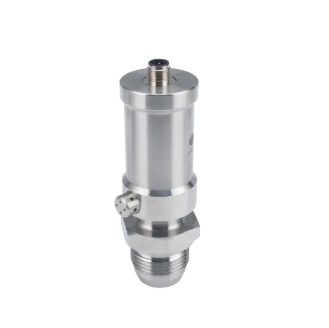Where Is A Pressure Sensor Used?
Views: 0 Author: Site Editor Publish Time: 2025-03-20 Origin: Site
Introduction
Did you know that pressure sensors are found in countless devices we use every day? From cars to medical equipment, these small components play a crucial role.
Pressure sensors help monitor and regulate systems, ensuring they operate safely and efficiently.
In this post, you’ll learn where pressure sensors are used, their importance, and how they impact various industries.
Where is a Pressure Sensor Used?
Automotive Applications of Pressure Sensors
Pressure Sensors in Braking Systems
Pressure sensors are critical for vehicle braking systems. They monitor hydraulic brake pressure, ensuring that the vehicle stops safely when needed. If pressure drops too low, sensors alert the driver, preventing brake failure.Airbag Deployment Systems
Airbags rely on pressure sensors to inflate properly during a crash. These sensors detect rapid pressure changes, triggering the airbag to deploy at the right moment, offering better protection for passengers.Fuel and Exhaust Systems
Pressure sensors in fuel systems ensure fuel pressure stays within safe limits. In exhaust systems, they monitor pressure to help reduce harmful emissions, promoting environmental safety and engine efficiency.Tire Pressure Monitoring Systems (TPMS)
Tire pressure sensors keep track of tire inflation levels. If pressure falls below safe levels, the system warns the driver, reducing the risk of accidents caused by flat or under-inflated tires.
Medical Applications of Pressure Sensors
Hyperbaric Therapy
Pressure sensors are vital in hyperbaric oxygen therapy, which treats conditions like carbon monoxide poisoning and skin grafts. They monitor pressure levels in sealed chambers to ensure patients receive the correct treatment.Blood Pressure Monitoring
In medical devices, pressure sensors help accurately measure blood pressure. These sensors ensure that doctors receive reliable data, aiding in diagnosing and managing health conditions like hypertension.In Vivo Blood Pressure Sensing
Tiny, implantable pressure sensors are being used for continuous blood pressure monitoring inside the body. These advancements offer real-time data, which is crucial for patients who need constant medical supervision.
Industrial and Manufacturing Applications of Pressure Sensors
Hydraulic Systems
Pressure sensors in hydraulic systems ensure smooth operation by monitoring fluid pressure. They help avoid damage to machinery and prevent system failures by alerting operators when pressure goes out of range.Pressure Measurement in Tanks
Pressure sensors measure the pressure inside liquid storage tanks. This helps monitor fluid levels, preventing overflows and maintaining safe operating conditions.Smart Factories and Industry 4.0
Pressure sensors are essential in modern smart factories. They enable automation and predictive maintenance by continuously tracking pressure and providing data that helps optimize production and reduce downtime.
Building Automation and Home Systems
HVAC Systems and Refrigeration
In HVAC systems, pressure sensors regulate the flow of refrigerants, ensuring temperature control is consistent. They maintain optimal pressure for energy-efficient heating and cooling.Gas Leak Detection
Pressure sensors are critical for detecting gas leaks in buildings. They monitor pressure changes in pipes and tanks, alerting authorities if a leak occurs, thus preventing potential hazards like explosions.Water Pressure Systems
In homes and buildings, pressure sensors help maintain water pressure in pipes. They ensure water flows at the correct pressure, preventing damage to plumbing systems and providing consistent water supply.
Consumer Products and Everyday Devices
Smart Vacuum Cleaners
Pressure sensors in vacuum cleaners adjust suction power based on floor type. This ensures efficient cleaning while preventing damage to delicate surfaces like hardwood floors.Wearables and Health Devices
Pressure sensors are used in fitness trackers and smartwatches to monitor physical activities. These sensors help track heart rate, blood oxygen levels, and even sleep patterns, promoting overall health management.Smartphones and Tablets
Pressure sensors in touchscreens detect varying levels of pressure. This feature allows users to interact with devices in more dynamic ways, such as pressing harder for additional functions.
Aerospace and Aircraft Applications
Pressure Sensors in Aircraft Altitude Measurement
In aircraft, pressure sensors help determine altitude by measuring atmospheric pressure changes. Aneroid barometers and other sensors provide critical data for navigation and altitude control.Engine Pressure Monitoring
Pressure sensors monitor engine components like fuel systems and turbines. They ensure safe operation by detecting pressure fluctuations that could indicate potential issues in the engine or fuel systems.
Key Benefits of Using Pressure Sensors
Enhanced Safety and Reliability
Early Detection of Pressure Anomalies
Pressure sensors can spot changes in pressure levels before they cause significant issues. By alerting users to anomalies early, they prevent equipment failure and accidents. This is crucial in high-risk environments like manufacturing or transportation.Predictive Maintenance
Pressure sensors play a key role in predictive maintenance strategies. They help monitor system health continuously, identifying potential problems before they lead to costly repairs or unplanned downtime. This saves both time and money for businesses.
Energy Efficiency and Environmental Benefits
Reducing Energy Consumption
Pressure sensors optimize system performance, making them more energy-efficient. By ensuring pressure levels remain within optimal ranges, sensors reduce unnecessary energy waste. This is particularly beneficial in HVAC systems and industrial machinery.Minimizing Environmental Risks
Pressure sensors help detect leaks or dangerous pressure fluctuations in systems. By catching these issues early, they prevent hazardous situations, such as gas leaks or pressure vessel failures, thus protecting the environment and enhancing safety.
Cost Savings for Businesses
Decreasing Operational Costs
By monitoring pressure levels, sensors provide early warnings of irregularities. This allows for timely repairs, reducing the cost of unexpected breakdowns and avoiding extensive repairs. Over time, this leads to significant savings.
Improving Efficiency
Pressure sensors improve the overall efficiency of systems. By ensuring optimal performance, they help processes run smoothly, reducing waste and saving valuable resources. This increased efficiency directly impacts the bottom line.
Conclusion
Pressure sensors are used in many industries, including automotive, medical, industrial, and consumer products. They help monitor and maintain system performance, improving safety and efficiency.
Looking ahead, emerging technologies in pressure sensing will likely lead to even smarter systems. These advancements will further enhance automation, predictive maintenance, and environmental safety across industries.
Quick Links
Product Category
Contact Us
Phone : +86-17551075580
E-mail : info@hjsensor.com
Whatsapp : +8617551075580

